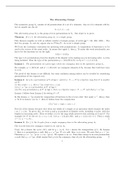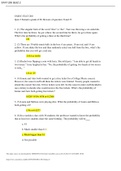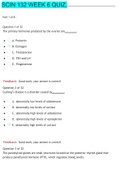Summary
Summary Trespass to the person
- Course
- Institution
These notes are aimed at 1st-year tort law students. They go into lots of detail on the areas such as assault, battery, and false imprisonment, and also go on to consider harassment. The notes contain hundreds of key cases for the 1st-year exam.
[Show more]








